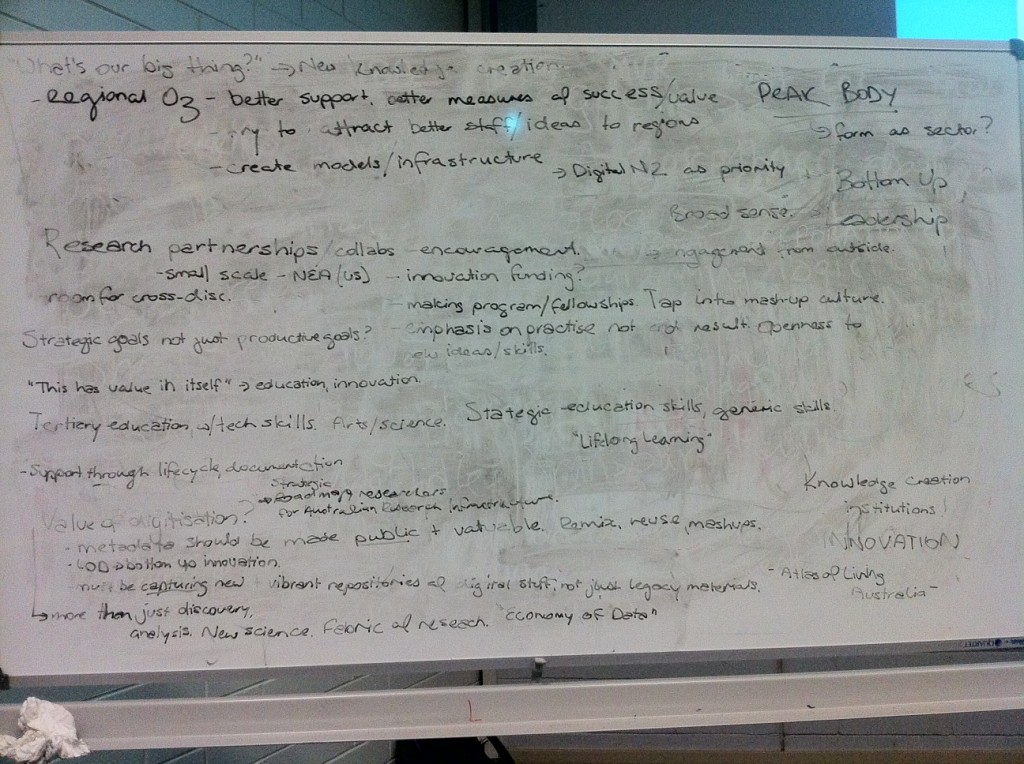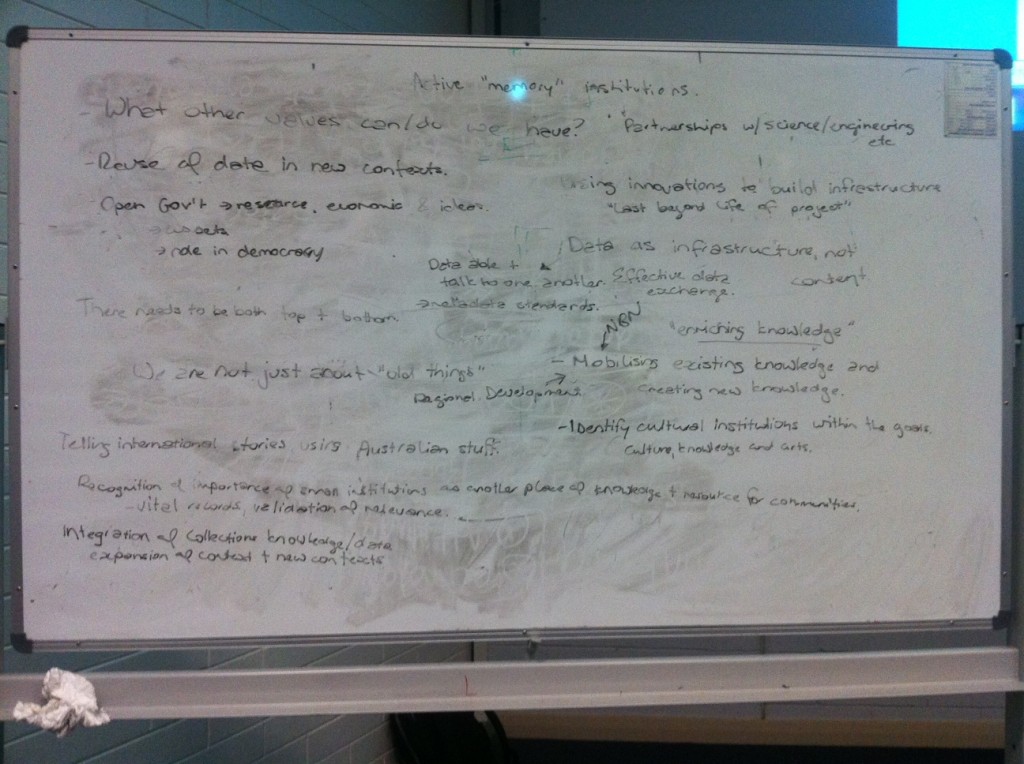SESSION FORMAT: Facilitated talkfest
This is a tentative exploration of ideas, so if anyone specialises in this, please jump in.
Official government information, historical records and newspaper articles tell part of the story of a community. The digital humanities community is working well to collect and expose this data.
Many communities have “shoeboxes under the bed” containing personal information like family photographs, recipes, memorabilia and artworks. People can be filmed or recorded telling their personal stories. Amateur historians, hobby genealogists, community arts projects, library local history collections, ABC Open are all involved in trying to capture these stories.
“Build it and they will come” models for harvesting this type of data have not proved effective. The internet is littered with beautiful looking sites with great architecture that have no data beyond the initial seeding data that was collected before grant money ran out.
Kete Horowhenua is an example of a successful site collecting many different digital formats and community metadata, harvesting the shoeboxes under the bed. http://horowhenua.kete.net.nz/
QUESTIONS FOR DISCUSSION
What is the best way to create a project to harvest these stories that has community ownership ?
Is there value in creating a model or guidelines to create an easy-to-implement platform for communities that want to harvest their shoeboxes? What features need to be included beside:
- rights management
- remix
- best metadata schema
- conversion to standardised file formats
- exposure to search engines
How would one co-locate these records with official datasets so that together they tell a complete story?
Is there a role for public libraries as physical places to collect these stories and virtual places to create platforms for these stories?



